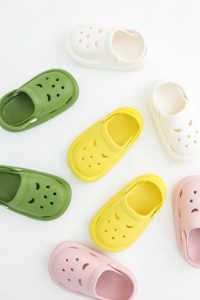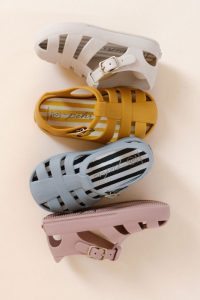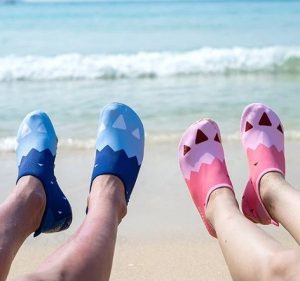Physical Address
304 North Cardinal St.
Dorchester Center, MA 02124
Physical Address
304 North Cardinal St.
Dorchester Center, MA 02124

Water shoes can be handy for protecting your baby’s feet at the beach, pool, or lake. But are they really necessary? Here’s a look at the pros and cons of water shoes for babies to help you decide.
Water shoes can protect your baby’s feet from hot sand, sharp rocks, and other hazards.
Water shoes with good tread can help prevent slips and falls on wet surfaces.
Some water shoes are made with soft, comfortable materials that can protect your baby’s feet from blisters.

There are a few alternatives to shoes that you can consider for your baby:
No matter what you choose for your baby’s feet, safety is always the top priority when near water. Here are some essential safety tips:

Water shoes may be a good option for your baby in some situations, such as:
The decision of whether or not to use shoes for your baby is up to you. Weigh the pros and cons and consider your baby’s age, activity level, and the environment they will be in.
Remember, the most important thing is to keep your baby safe and happy when they are near water.
Water shoes can be a good option for some babies in certain situations, but they aren’t always necessary. Here are some additional factors to consider when deciding on footwear for your baby at the beach or pool:
Age: Younger babies who are just splashing in shallow water may not need any footwear. Older babies who are walking or running around may benefit from some protection for their feet.
Activity Level: If your baby is likely to be climbing on rocks or playing in sandy areas with shells or debris, water shoes can provide protection.
Surface Conditions: Consider the beach or pool area. If the surface is smooth and free of hazards, barefoot may be okay. However, if the surface is rocky, uneven, or has a lot of pebbles, water shoes can help prevent scrapes and discomfort.

The American Academy of Pediatrics (AAP) recommends allowing babies plenty of barefoot time whenever possible. This is because barefoot time helps promote healthy foot development by:
If you choose to use water shoes, opt for ones that are flexible and allow for some natural movement.
Water shoes can be a useful tool for protecting your baby’s feet in certain situations. However, they shouldn’t replace barefoot time altogether. Consider your baby’s age, activity level, and the environment when deciding on footwear.
Remember, the most important thing is to keep your baby safe and happy while they’re having fun at the beach or pool!
If you decide water shoes are the right choice for your baby, here are some tips for finding the perfect fit:

Whether or not your baby needs water shoes depends on the specific situation. Here are some additional thoughts to consider for a safe and fun beach or pool trip with your little one:
Sun Protection: Sunscreen is essential for protecting your baby’s delicate skin from the sun’s harmful rays. Choose a broad-spectrum, water-resistant sunscreen with SPF 30 or higher.
Hydration: Babies can get dehydrated quickly in the sun. Bring plenty of cool, fresh water for your baby to drink throughout the day.
Shade: Provide plenty of shade for your baby, especially during peak sun hours. This could be a beach umbrella, a pop-up tent, or seeking shade from trees or structures.
Beach Toys: Pack some fun beach toys for your baby to play with in the sand or pool. Look for toys that are appropriate for their age and are free of small parts that could be a choking hazard.
By planning ahead and taking these precautions, you can ensure a memorable and enjoyable outing for you and your baby.

Water shoes can be a helpful way to protect your baby’s feet at the beach or pool. By considering the pros and cons, choosing the right shoes for the situation, and following these safety tips, you can help ensure your baby has a fun and safe time in the water.